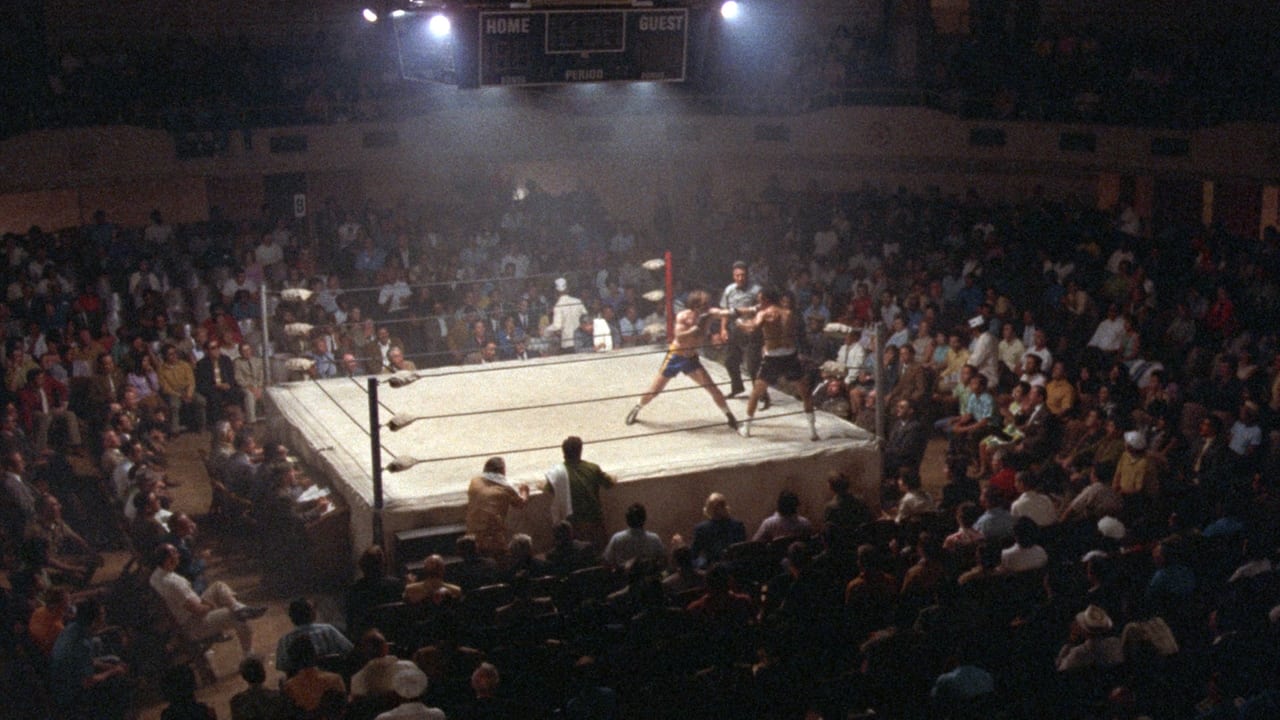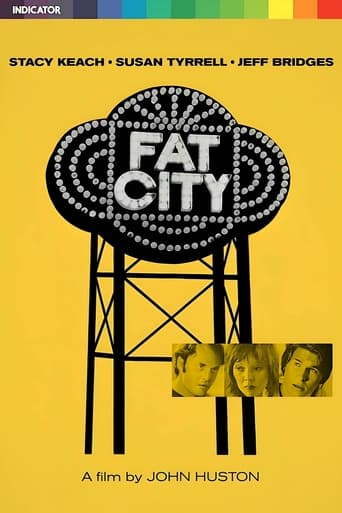

Tied for the best movie I have ever seen
... View MoreSuch a frustrating disappointment
... View MoreSelf-important, over-dramatic, uninspired.
... View MoreHighly Overrated But Still Good
... View MoreI knew this film was one listed in the book 1001 Movies You Must See Before You Die, I didn't know anything else about the film besides this, this was good enough reason for me to try it, directed by John Huston (The Treasure of Sierra Madre, The Asphalt Jungle, The African Queen, The Man Who Would Be King). Basically at a gym in Stockton, California, past his prime boxer Billy Tully (Stacy Keach) meets eighteen-year-old Ernie Munger (Jeff Bridges), they getting into shape and spar with each other. Tully sees potential in young Ernie, he suggests he looks up his former manager and trainer Ruben (Nicholas Colasanto), he tells about how impressed he is with the kid to aggressive barfly Oma Lee Greer (Oscar nominated Susan Tyrrell) and her easygoing boyfriend Earl (Curtis Cokes), Tully is newly inspired and keen to get back in the ring himself. Ever since his wife left him Tully's life has been a mess, he drinks too much and cannot hold down a job, he picks fruit and vegetables to make ends meet, he still blames Ruben for mishandling his last fight. Earl is sent to prison for a few months, this allows Tully to try moving in with Ola, but the relationship between them is rocky. Munger loses his first fight and gets his nose broken, he is knocked out in his second fight as well, Munger gets forced into marrying Faye (Candy Clark) when she becomes pregnant, he starts picking fruit himself to make some money. In his first fight back in the ring, Tully fights against tough Mexican boxer Lucero (Sixto Rodriguez), he is much older and in considerable pain, they knock each other out before Tully is declared the winner, but his celebration is brief as he is only paid $100. Tully ends his business partnership with Ruben, he then returns to Oma's apartment, Earl is there and still paying the rent, Earl assures him that alcoholic Oma wants nothing to do with Tully anymore. One night, Munger is returning home from a fight, he finds Tully drunk in the street, he tries to ignore him, but he reluctantly agrees to go for a coffee with Tully. The two men sit and drink, Tully has sees strange things while looking at all the people around him, he almost breaks down with how his career is failing while Munger's is progressing, Munger tells him he should leave, but Tully wants to stay and talk some more, they continue to sit and drink coffee in silence. Also starring Art Aragon as Babe, Sixto Rodriguez as Lucero, Billy Walker as Wes, Wayne Mahan as Buford and Ruben Navarro as Fuentes. Keach (whose part was originally offered to Marlon Brando) is good as the prize-fighter going down in the dumps, and Bridges does well as the young contender on the rise, their rocky relationship certainly creates some tension, most boxing movies have more fights, full of blood, sweat and tears, this film focuses more on the hardships on the career side of it, it is slow at times, but overall an interesting enough sports drama. Good!
... View MoreOne of John Huston's late masterpieces. In fact, if "Fat City" were the only John Huston film you were ever to see you would still know you were watching the work of a great director. Leonard Gardner adapted his own novel about a punch-drunk boxer hoping to make a comeback and Huston transformed it into a sad, funny elegy on the themes of loss and survival; every scene makes a point, every scene hits home.It's also magnificently acted. Stacy Keach is Tully, the boxer who's a born loser. Jeff Bridges is the younger boxer who's 'soft in the middle' and who's no more likely to make it than Tully. Nicholas Colasanto steals almost every scene he's in as their manager, sadly another loser and there's a phenomenal performance from Susan Tyrrell as the lush Keach takes up with. She was Oscar-nominated and she should have won. This is also one of the greatest boxing pictures ever made.
... View MoreErnie (Jeff Bridges) is a loser fighter who can't last more than the time it takes to hang up his robe. Tully (Stacy Keach) is an old drunk and a fighter past his usefulness. Tully laments the old times and is trying to get back into the fight game. He shacks up with another drunk Oma (Susan Tyrrell).Director John Huston brings us a portrait of the ugly side of boxing. These are the nobodys. Susan Tyrrell's performance is truly shocking. Her character is worth the watch for this movie. Although the story follows both Ernie and Tully, it's probably a better idea to concentrate more on Tully. Ernie's story can be told as a side issue to Tully. Stacy Keach has the more compelling character. His struggle is more poignant. He should have been the only protagonist.
... View MoreDespite the abrupt ending of this film, you can't take it away that it was a good film.It's not just basically another boxing movie; rather, we delve into the strong characters shown here. Life as we know it has not been good to them. It seems their only livelihood can come from the ring.In a remarkably good performance, Stacy Keach plays a has-been fighter, down on his luck, and frustrated to the hilt. He takes up with Susan Tyrrell after meeting her twice in a bar. Tyrrell gives a totally marvelous performance here as the frustrated, neurotic, disenchanted alcoholic and throws no punches along the way. She was terrific here. The daughter of Anne Tyrrell, remember the latter as Violet on the Ann Sothern television show "Private Secretary?"A very young Jeff Bridges plays an 18 year old up and coming boxing with a new family to contend with.
... View More